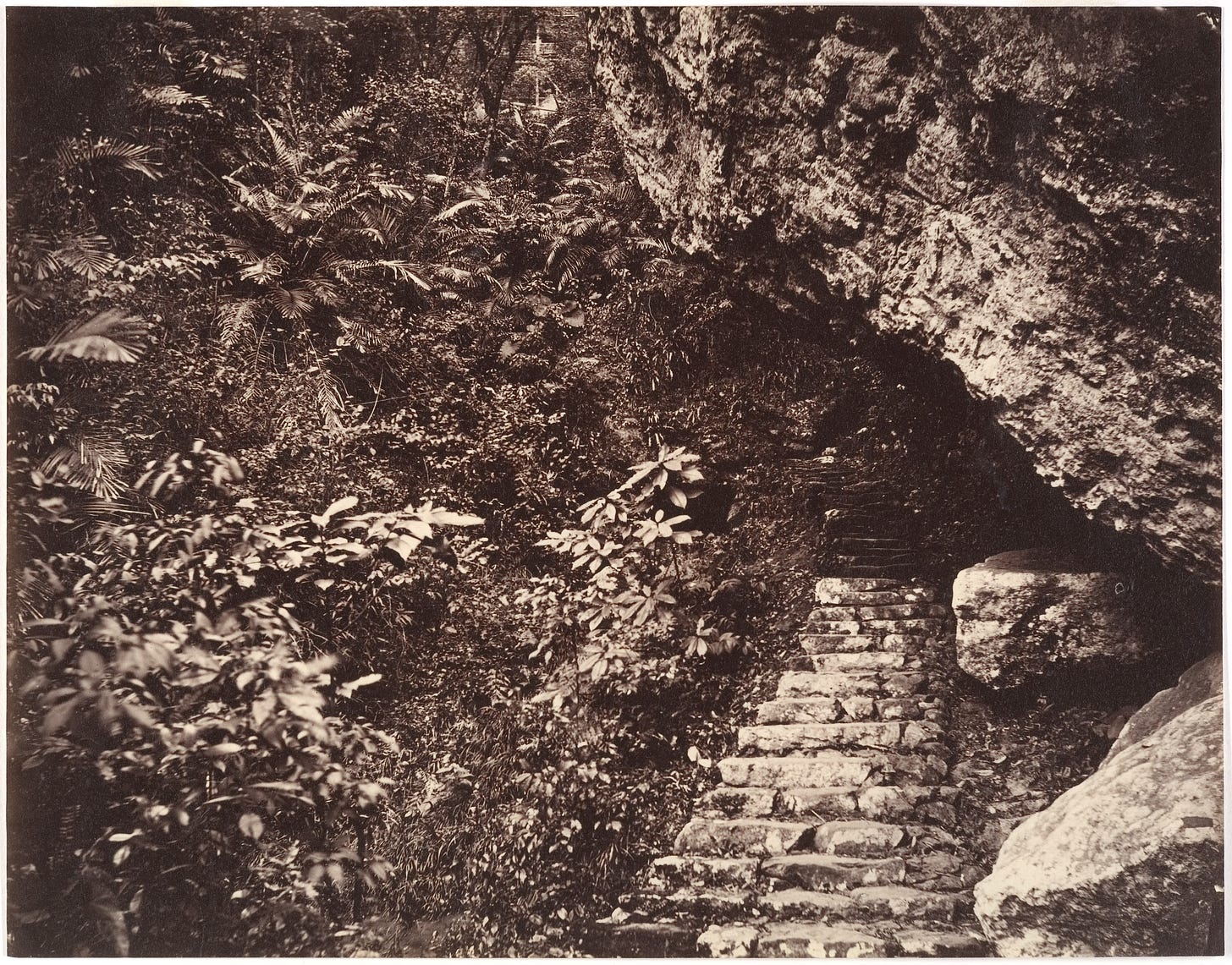Introduction (3): Starting at Step Zero
The third in a series about the journey to this publication and what you can expect from it

Real ideas can point your life in a new direction with a slow, sure effect. You have to bring something to these ideas, though. You have to live with them for a while, grow into them, let them work on you and maybe take you apart and put you back together again.
On my path to discovering the connection between playing the guitar well and living well, there was one idea above all that saved my sanity: Begin where you are.
It was not necessary to forget everything I’d ever learned about playing the guitar and start from scratch. It was not necessary to block the memories of all the soul-crushing gigs I’d played or sink into nostalgia for high school garage bands. It was not necessary to erase my personal or musical history. Rather, I could hold all those past events in a new way — not as destiny but as preparation.
How to begin? The minute that I asked the question, I knew that it had been answered. Only one attitude is necessary: I am exactly where I need to be. Everything that I’ve ever thought, felt, and done has prepared me for this moment.
Soon I started hearing the whole world as music. I practiced tuning in to my total sonic environment — the roar of the city buses, screaming children, barking dogs, car alarms, planes flying overhead. Any sound. Every sound.
Above all, I tuned in to conversations. I let go of their content and simply noticed the tone, pitch, pace, and intensity of the human voices. Listening in this way, I realized that music is human speech with the words omitted. What’s left then is pitch, tone color, harmony, and rhythm. Realizing this, I started hearing a hundred melodies every day.
When you play guitar, you enter a conversation. You speak to your listeners not with words but with contrasts. Even if they know little about music, people hear loud versus soft, dense versus light, bright versus dark, fast versus slow. These contrasts, coming in waves of tension and release, convey the emotional aspect of music.
Gary Burton said that every improvised solo is a conversation. Start your solo with a bang, he said, a declarative statement that the focus has moved to you. Don’t begin a solo tentatively: That’s like starting a conversation by saying that you have no idea what to talk about.
As you solo, draw attention to the aspects of the tune that you find interesting. Develop solos as theme and variations. Take a motif and develop it over several chords or even a whole tune. If you play motives without developing them, it’s like a conversation where you change the subject every sentence.
I realized, too, that there was something before step one on my new musical path. This is step zero: Before playing, just sit in silence. I got this from Robert Fripp, cofounder and guitarist for King Crimson:
Before we do something, we do nothing.
Do nothing – as much as you can!
The ability to do nothing, he says, is already a great accomplishment. If we cannot command ourselves to sit quietly for a few minutes, then how can we command ourselves to play music — or to do anything else?
Taking the time to sit in silence for a minute after I pull out my guitar teaches me a lot — mainly, that I am bundle of compulsions and mechanical behaviors. My habit is to just started noodling with no clear intention about what to practice for the day. In a mindless daze, I cycle through exercises and songs I already know. Nothing new is mastered. Nothing is gained. This sacred time with my instrument is wasted. Just sitting in silence would have been much better.
Sound and silence. Conversation and conscious choice. When these became working concepts, I knew that I’d taken the first step on the path.
Of course, there are so many implications to discover and unpack, as I’ll attempt to do in future posts. But I can at least start from solid points of contact.
Today, when I pull my guitar out of its case and cradle it in my arms to play, it feels like a beneficent stranger. The instrument is new to me, and every day I can begin again.



